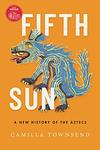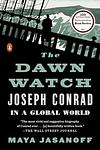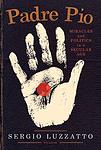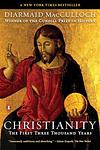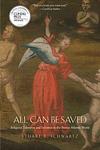The Cundill History Prize
This is one of the 300 lists we use to generate our main The Greatest Books list.
-
Red Memory by Tania Branigan
"Red Memory" delves into the complex legacy of Mao Zedong's rule in China, exploring how it continues to shape the nation's identity and politics. Through personal stories and interviews, the book uncovers the deep and often conflicting emotions of Chinese citizens who lived through the tumultuous periods of the Great Leap Forward and the Cultural Revolution. The narrative reveals a society grappling with its past, where personal memories of suffering, resilience, and ideological fervor coexist with a state-driven narrative that both reveres and selectively forgets aspects of its own history. This exploration highlights the challenges of reconciling individual trauma with collective memory and the ongoing impact of Mao's era on contemporary China.
The 11067th Greatest Book of All Time -
All That She Carried by Tiya Miles
"All That She Carried" is a poignant exploration of the emotional and historical journey of a single cotton sack passed down through three generations of Black women, beginning with an enslaved woman named Rose who gave it to her nine-year-old daughter, Ashley, when she was sold away. The sack, which contained a few precious items, serves as a powerful symbol of love, resilience, and survival. Through meticulous research and evocative narrative, the book delves into the impact of slavery on individual lives and the enduring strength of maternal love across time and circumstance, revealing the profound connections between past and present.
The 11057th Greatest Book of All Time -
Blood On The River by Marjoleine Kars
"Blood on the River" explores the riveting history of a massive slave rebellion in 1763 in the Dutch colony of Berbice, in present-day Guyana. The book delves into the extraordinary, yet nearly forgotten, events where enslaved Africans, led by a man named Coffy, rose up against their oppressors in a well-organized revolt. Drawing on previously overlooked primary sources, the narrative vividly reconstructs the complex socio-political landscape of the colony, the strategic planning of the rebels, and the brutal response from the colonial government. Through this detailed examination, the book sheds light on the resilience and agency of the enslaved, offering a poignant and critical reevaluation of resistance during the era of slavery.
The 11051st Greatest Book of All Time -
Fifth Sun by Camilla Townsend
"Fifth Sun" offers a comprehensive history of the Aztecs based on indigenous texts written in the Nahuatl language. The book challenges conventional narratives derived from Spanish sources, presenting an insightful perspective on Aztec life, culture, and politics from the viewpoint of the Aztecs themselves. Through a detailed examination of these native texts, the book reconstructs the rich tapestry of a complex society, exploring its rise, its interactions with neighboring peoples, and its eventual confrontation with the Spanish conquistadors. This work provides a nuanced understanding of the Aztec civilization by highlighting their intellectual achievements, societal norms, and the internal and external challenges they faced.
The 11043rd Greatest Book of All Time -
Maoism by Julia Lovell
"Maoism: A Global History" explores the profound influence of Maoist ideology beyond China, tracing its impact and adaptation in various countries around the world. The book delves into how Mao Zedong's ideas were interpreted and applied in different contexts, from the jungles of Southeast Asia to the urban centers of Europe and America, shaping revolutionary movements and national policies. It examines the allure of Maoism to its international adherents, the resulting political or violent struggles, and its legacy in contemporary politics, offering a comprehensive analysis of how a Chinese revolutionary ideology transformed into a global phenomenon.
The 11043rd Greatest Book of All Time -
The Dawn Watch by Maya Jasanoff
"The Dawn Watch" explores the life and times of Joseph Conrad, delving into the profound impact of his experiences as a sailor and immigrant on his celebrated literary works. The book weaves together a biography of Conrad with an analysis of the globalization processes that shaped the modern world, as reflected in his novels. By examining themes such as imperialism, capitalism, and cultural encounters, the narrative not only sheds light on Conrad's personal struggles and insights but also on how his writings foresaw and articulated the complexities and challenges of today's global society.
The 11032nd Greatest Book of All Time -
The House Of The Dead by Daniel Beer
"The House of the Dead" explores the brutal reality of life in Siberian penal colonies during the nineteenth century, where the Russian Empire sent thousands of prisoners to endure incredibly harsh conditions. The book provides a detailed historical account, drawing on a wealth of archival material and personal stories to illuminate the lives of these exiles. It examines the impact of exile on the transformation of Russia, revealing how the penal system influenced both the society and the political landscape, including the rise of revolutionary movements. Through its vivid narrative, the book paints a comprehensive picture of suffering, survival, and the human capacity to adapt in one of the most inhospitable places on earth.
The 11032nd Greatest Book of All Time -
The Work Of The Dead by Thomas W. Laqueur
"The Work of the Dead" explores the profound cultural and historical significance of how societies treat their dead, arguing that the care for the deceased reflects deep values and social norms. The book traces the practices surrounding the dead from ancient times to the modern era, examining how the living remember, honor, and derive meaning from those who have passed. Through a detailed analysis of burial rituals, cemeteries, and mourning practices across different cultures and epochs, the author illustrates how the dead continue to play a crucial role in shaping the social, political, and moral landscapes of the living, ultimately asserting that our treatment of the dead reveals fundamental aspects of our humanity.
The 11023rd Greatest Book of All Time -
The Guardians by Susan Pedersen
"The Guardians" explores the formation and impact of the League of Nations' mandates system following World War I. The book delves into how the League aimed to administer former colonies and territories of the defeated powers through a new global governance model. It examines the roles played by various international administrators and the challenges they faced in balancing the interests of the former colonial powers with the aspirations of the local populations. The narrative also highlights the broader implications of the mandates system on international relations and its legacy in shaping modern concepts of international oversight and governance.
The 11023rd Greatest Book of All Time -
The Blood Telegram by Gary J. Bass
"The Blood Telegram" is a gripping historical account that explores the devastating 1971 genocide in Bangladesh, then East Pakistan, and the complex political maneuvers during the Cold War era. The book focuses on the moral dilemmas and foreign policy decisions faced by the United States, particularly under the Nixon administration, which, despite receiving detailed reports from its own consul general in Dhaka about the atrocities committed by the Pakistani military, chose to support Pakistan due to its strategic interests. This decision was influenced by the U.S.'s desire to use Pakistan as a conduit for opening relations with China, sidelining the horrific human rights abuses and the desperate pleas for help. The narrative is a powerful indictment of realpolitik and the often catastrophic human cost of geopolitical strategy.
The 11012th Greatest Book of All Time -
Iron Curtain by Anne Applebaum
"Iron Curtain" is a compelling historical analysis that delves into the brutal tactics employed by the Soviet Union to establish communist regimes in Eastern Europe after World War II. The book meticulously examines how political parties, cultural institutions, and the media were manipulated and often violently coerced to suppress opposition and control public life. Through personal stories and detailed research, it explores the profound impact of totalitarianism on the lives of individuals and the social fabric of societies behind the Iron Curtain, highlighting the methods of oppression and the legacy of this dark period in European history.
The 11004th Greatest Book of All Time -
Autumn In The Heavenly Kingdom by Stephen R. Platt
This book provides a detailed historical account of the Taiping Rebellion, one of the most devastating civil wars in history, which took place in 19th-century China. It challenges the conventional Eurocentric perspective by focusing on the dramatic narrative of this conflict and its charismatic leaders, such as Hong Xiuquan, who led a movement to overthrow the Qing dynasty amidst the backdrop of the Opium Wars. The narrative not only explores the massive human cost and the geopolitical stakes but also examines the significant impact of these events on international relations and how they shaped the modern world.
The 11004th Greatest Book of All Time -
Padre Pio by Sergio Luzzatto
The book explores the life and influence of Padre Pio, a Capuchin friar known for his piety, stigmata, and miraculous abilities, which drew both devotion and skepticism. Through rigorous historical research, the author delves into the controversies and fervor surrounding Pio, examining his role within the Catholic Church and his impact on the faithful. The biography critically assesses both the saintly and human aspects of Pio's life, presenting a complex portrait of a figure revered by many and questioned by some, set against the backdrop of 20th-century Italian religious and social history.
The 10978th Greatest Book of All Time -
Christianity by Diarmaid MacCulloch
This book provides a comprehensive history of Christianity, tracing its evolution from its beginnings as a Jewish sect to its role as a global religion. The author explores the development of Christian doctrine, the establishment of the institutional church, and the series of reformations and counter-reformations that have shaped its form and practice over two millennia. The narrative also delves into the cultural, political, and social influences that have influenced the religion's spread and transformation, offering insights into the diverse and complex ways Christianity has interacted with different societies around the world.
The 10993rd Greatest Book of All Time -
Going Dutch by Lisa Jardine
"Going Dutch" explores the profound influence of Dutch culture and innovation on seventeenth-century England during the reign of William III and Mary II. The book delves into how the Glorious Revolution led to a significant transfer of intellectual and cultural ideas between the Dutch and the English. It examines the impact of this cross-cultural exchange on various aspects of British life, including art, science, trade, and politics, highlighting how Dutch expertise and practices were instrumental in transforming and modernizing England. The narrative provides a detailed analysis of the period, illustrating the lasting impact of Dutch influence on British society.
The 10985th Greatest Book of All Time -
All Can Be Saved by Stuart B. Schwartz
"All Can Be Saved" explores the diverse and often overlooked religious views in colonial Latin America, particularly among the common people who challenged the rigid doctrines imposed by the Spanish and Portuguese empires. The book delves into the personal beliefs and practices of individuals who, despite the threat of the Inquisition, dared to express and follow their own interpretations of Christianity. Through extensive archival research, the author reveals a complex tapestry of faith that includes dissenting views on salvation, morality, and the authority of the Church, highlighting the spiritual autonomy and resistance among the colonized populations in the face of imperial and religious domination.
The 10985th Greatest Book of All Time
The Cundill History Prize, 16 Books
The Cundill History Prize is an annual Canadian book prize for "the best history writing in English". It was established in 2008 by Peter Cundill and is administered by McGill University. The prize encourages "informed public debate through the wider dissemination of history writing to new audiences around the world" and is awarded to an author whose book, published in the past year, demonstrates "historical scholarship, originality, literary quality and broad appeal". No restrictions are set on the topic of the book or the nationality of the author, and English translations are permitted.
Added 18 days ago.
This list has a weight of 4%. To learn more about what this means please visit the Rankings page.
Here is a list of what is decreasing the importance of this list:
- List: only covers 1 year (yearly book awards, best of the year, etc)
- List: only covers 1 specific genre
- Voters: are mostly from a single country/location
If you think this is incorrect please e-mail us at [email protected].



